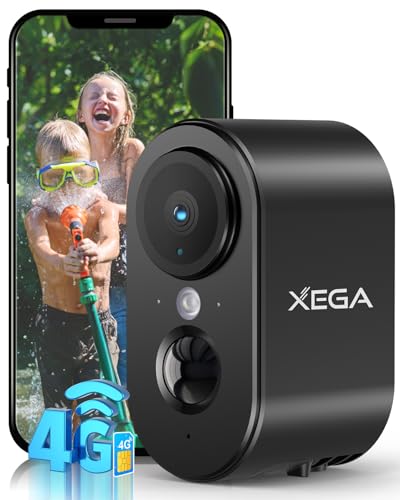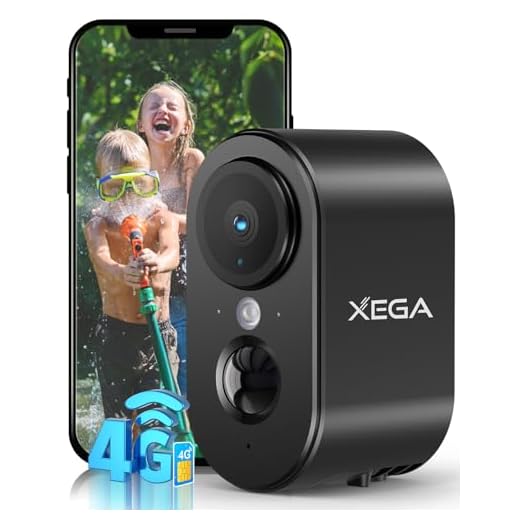
Security cameras have become an essential part of modern home security systems, providing a sense of peace and protection to homeowners. However, one common concern that many people have is whether security cameras can be used without wifi.
While most security cameras are designed to work with a wifi connection for remote monitoring and video storage in the cloud, there are options available for those who prefer or need to use a security camera without wifi.
Some security cameras offer the option of local storage through a memory card or a dedicated storage device, allowing you to save footage directly on the camera itself. This can be a convenient solution for those who want to keep their data offline and have easy access to it without relying on a wifi connection.
Is it Possible to Use a Security Camera Without Wifi?
Many modern security cameras rely on wifi connectivity for remote monitoring and control. However, it is possible to use a security camera without wifi by opting for a wired connection instead. Wired security cameras can be connected directly to a recording device or monitor using cables, eliminating the need for wifi. This setup is ideal for locations where wifi signals may be weak or unreliable.
While wifi offers convenience and flexibility, a wired security camera system can provide a reliable and secure surveillance solution. Keep in mind that wired cameras may require professional installation and may not offer the same level of remote accessibility as wifi-enabled cameras. Nevertheless, they can still be a viable option for certain security needs.
Benefits of Using a Security Camera Without Wifi
While wifi-enabled security cameras offer convenience and remote monitoring options, there are several benefits to using a security camera without wifi:
| 1. Enhanced Security | Security cameras without wifi are less susceptible to hacking and cyber attacks, providing a more secure surveillance solution. |
| 2. Stable Connection | Wifi signals can sometimes be unreliable or subject to interference, but wired security cameras offer a stable connection for continuous monitoring. |
| 3. No Internet Dependence | Security cameras without wifi do not require an internet connection, making them ideal for remote locations or areas with limited connectivity. |
| 4. Lower Cost | Wifi-enabled security cameras often come with additional costs for cloud storage or subscription services, while non-wifi cameras can be a more cost-effective option. |
| 5. Easy Installation | Wired security cameras are typically easier to install without the need to configure wifi settings, making them a straightforward solution for home or business security. |
Types of Security Cameras That Don’t Require Wifi
While most modern security cameras rely on wifi for connectivity, there are still options available for those who prefer a more traditional setup. Here are some types of security cameras that don’t require wifi:
Battery-Powered Cameras:
Battery-powered security cameras use cellular networks or other wireless technologies to transmit data, eliminating the need for wifi. These cameras are easy to install and can be placed virtually anywhere without worrying about wifi signal strength.
Wired Cameras:
Wired security cameras connect directly to a recording device or monitor using cables, eliminating the need for wifi altogether. These cameras provide a reliable and secure connection, making them a popular choice for those concerned about hacking or interference.
How to Set Up a Non-Wifi Security Camera
If you have a security camera that does not require wifi, you can still set it up for surveillance purposes. Here are the steps to help you set up a non-wifi security camera:
1. Choose the Right Location: Select a strategic location to install your security camera where it can cover the desired area effectively.
2. Power Source: Non-wifi security cameras usually require a power source to function. Make sure you have access to a power outlet nearby.
3. Mounting the Camera: Use the provided mounting hardware to securely attach the camera to the chosen location. Ensure it is placed at the right angle for optimal coverage.
4. Adjust Settings: Follow the manufacturer’s instructions to adjust the camera settings such as motion detection sensitivity, recording mode, and other preferences.
5. Connect to a Monitor or Recording Device: Non-wifi security cameras typically have outputs that allow you to connect them to a monitor or recording device for live viewing or storing footage.
6. Test the Camera: Once everything is set up, test the camera to ensure it is functioning correctly and capturing the desired footage.
By following these steps, you can effectively set up a non-wifi security camera for your surveillance needs.
Features to Look for in a Wifi-Free Security Camera
When choosing a security camera that doesn’t require wifi, there are several key features to consider:
1. Local Storage: Look for a camera that offers local storage options such as SD card slots or internal storage to store recorded footage.
2. Power Source: Consider how the camera is powered, whether it’s battery-operated, wired, or solar-powered for continuous monitoring.
3. Motion Detection: Opt for a camera with motion detection capabilities to alert you of any activity in the camera’s field of view.
4. Night Vision: Ensure the camera has night vision functionality for clear footage in low-light or dark conditions.
5. Weather Resistance: If you plan to install the camera outdoors, choose one that is weatherproof and can withstand various weather conditions.
By considering these features, you can select a reliable security camera that operates without the need for wifi connectivity.
Comparison of Wifi vs. Non-Wifi Security Cameras
When choosing a security camera, one of the key considerations is whether to opt for a Wifi-enabled camera or a non-Wifi camera. Here are some key differences between the two:
Wifi Security Cameras:
– Requires a stable internet connection to function
– Can be accessed remotely via a smartphone or computer
– Allows for real-time monitoring and alerts
– Offers cloud storage options for video footage
Non-Wifi Security Cameras:
– Do not rely on internet connection, making them more secure against hacking
– Limited in terms of remote access and monitoring capabilities
– Typically store footage locally on an SD card or DVR
– May require additional wiring for power and data transmission
Ultimately, the choice between Wifi and non-Wifi security cameras depends on your specific needs and preferences. Wifi cameras offer convenience and remote access, while non-Wifi cameras provide a more secure and reliable option for surveillance.
Common Misconceptions About Non-Wifi Security Cameras
When it comes to security cameras that don’t require wifi, there are several misconceptions that people often have. Let’s debunk some of the common myths:
1. Limited Functionality
One common misconception is that non-wifi security cameras have limited functionality compared to their wifi-enabled counterparts. In reality, many non-wifi cameras offer a wide range of features such as motion detection, night vision, and two-way audio communication.
2. Lack of Remote Access
Another misconception is that you can’t access footage from non-wifi security cameras remotely. While it’s true that these cameras don’t connect to the internet, many models come with a DVR or memory card slot that allows you to store and access recordings locally.
| Myth | Reality |
|---|---|
| Non-wifi cameras are less secure | Non-wifi cameras can be just as secure if properly installed |
| Non-wifi cameras are outdated | Non-wifi cameras still have their place in modern security systems |







